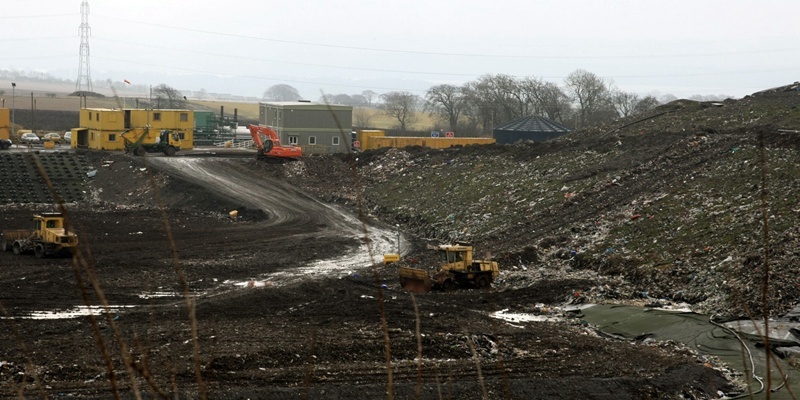Plans for Lochhead’s £15.5 million plant which could transform waste into power were welcomed by Fife’s administration leader Peter Grant this week as a “tremendously exciting project.”
Plans for the renewable power and heat plant at the Dunfermline landfill site have moved closer to reality following a decision by the policy, finance and asset management committee to award a conditional contract for the design and build of the plant in advance of a final business case being prepared.
Developing the plant could save the local authority £1.2 million a year and reduce carbon emissions by up to 11,000 tonnes. It could produce enough electricity to meet the needs of 1500 homes and generate sufficient heat to meet most of the needs of Queen Margaret Hospital.
It is also expected to bring a huge commercial boost to the council as it would open up the site to surrounding local authorities and business for waste disposal.
The final business case for the plant still needs to be considered at a future meeting of the committee, but councillors have agreed to invest up to £150,000 in a conditional contract to get work started.
Mr Grant, who is chairman of the committee, this week told The Courier, “Despite the tough times, we are still investing in a better future for Fife. This is a tremendously exciting project, which could pave the way for more sustainable energy to be used across the kingdom.
“We’ve already started kerbside collections of food waste and garden waste and, in parts of Glenrothes, this has helped our recycling rates to hit a record high of 72%. We will still have to carefully review the full business case when it’s finalised, but we have enough information to believe that committing a limited amount of money to the project now is the right thing for us to do as a leading green council.
“While there is a small risk in spending now if the project doesn’t receive final go-ahead, the greater risk is that if we don’t spend the money now it could delay the project and we would miss out on the significant financial and environmental benefits.”
The draft business case for the plant forecasts the generation of up to 1.5 megawatts of renewable power and heat from 43,000 tonnes of waste. In addition, up to 15,000 tonnes of fertiliser and 10,000 tonnes of compost could be generated for local agriculture.
The full business case is scheduled to be considered at June’s committee meeting. This will include detailed cost and biogas production information, which is being gathered through an ongoing tendering exercise, as well as confirmed subsidy levels for renewable heat, which are to be announced by the UK Government soon.
